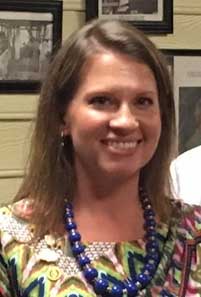Board proposes additional $100K
Published 11:31 am Wednesday, June 7, 2017

- Tracy Gee
Following a budget hearing Thursday that primarily focused on the allocated funds toward Lunenburg County Public Schools (LCPS) for the 2017-18 fiscal year, the Lunenburg County Board of Supervisors announced that an additional budgeted $100,000 would be set aside for the schools for capital improvement projects.
The county’s $32.4 million operating budget includes no tax increases.
The allocation of funds to the division has been the subject of debate since March meeting when school officials requested $794,786 in additional funding for the school’s 2017-18 fiscal year that would cover state-mandated retirement and health insurance costs, a 2-percent raise for teachers and staff and the hiring of additional staff.
Out of the approximately 25 people who were in the audience during the hearing, four spoke, all urging supervisors to provide full funding, additional funding or creating a long-term solution for the school division.
The division currently has a proposed budget allotment from the board of $3.5 million, which includes an additional $250,384 proposed during a May 11 board of supervisors’ meeting.
District One Representative T. Wayne Hoover announced supervisors decided to include a proposed $100,000 toward capital improvement for the schools that would be set aside to be used in cases of emergency situations or other needed repairs.
The funds, County Administrator Tracy Gee confirmed, will come from the proposed county budget debt service reserve.
During the hearing, Doug Aubel, a member of the Lunenburg County School Board, representing the Brown’s Store District, encouraged supervisors to provide full funding to the division.
Aubel said the schools received a budgetary allocation of $3.2 million in 2000 from the county, and that amount has changed little over the years, even as inflation and state-mandated costs have risen.
Aubel also noted that the Virginia Lottery’s funding to schools has no longer gone to capital improvements, a change he said was made in 2009.
Aubel said those factors have “had a devastating effect on our budget,” noting cuts in staff. He said teachers having gone four years without a pay raise.
Aubel asked during his comments why the board of supervisors was “so opposed to supporting the school.”
“It is irresponsible for anyone to even assume the situation is at all sustainable,” Aubel said. “It is now imperative that the shortfall of the budget be funded by the county.”
Aubel said possible real estate tax rate increases, which currently stands at .38 cents per $100 of assessed value, may benefit the school division and other public services.
Brenda Wade, an eighth-grade English teacher at Lunenburg County Middle School, said due to budgetary short falls, the English department, which originally had six teachers and two hours allotted for instruction per student a day, had been reduced to three teachers, one for each grade level and class and 51 minutes of instruction. Wade, who’s taught in the county for 20 years, said this has affected the students’ Standard of Learning (SOL) test scores and reading and writing development.
“Last year, we barely made accreditation in English at 73 percent. On a three-year average, we were able to make 75 on our SOLs,” Wade said.
The teacher said there was a chance the school would be able to barely make accreditation this year, but the next year is less certain.
“I’m going to continue to teach, but I can’t come up with an extra 51 minutes to teach this language arts class that they need,” Wade said. “It’s affecting our students. We’ve got to do something, and if that means I pay more taxes as a Lunenburg County resident … We are losing boots on the ground, minutes in the classroom, instruction for our students.”
Virginia Education Association representative Evette Wilson, who represents the teacher’s association for Lunenburg County in addition to nine other school divisions, spoke during the hearing and urged for a long-term solution for needs of the division.
“I encourage you to look at your future,” Wilson said. “What is the future of your area if it’s not invested in your children?” Wilson noted out of the 10 divisions she represents, eight counties had provided 2-percent raises.
District Two Supervisor Mike Hankins said that additional sources of funding and grants were being evaluated by the board and Division Superintendent Dr. Charles Berkley as a “one-time fix” that may sustain the division to the next year.
Hankins listed some of the grant considerations during the meeting and after the hearing, including one from the EPA Diesel Emission Reduction Act (DERA) Program, Lowe’s, USDS Distance Learning and Telemedicine Program and the Virginia Department of Education.
“There is a slim chance that we could get as much as a half million dollars,” Hankins said during the meeting. “I don’t think that’s going to happen … It’s more realistic that we may, as a goal, get $100,000-$150,000.”
District One Supervisor T. Wayne Hoover addressed the audience after the hearing, noting that one of the primary concerns, that the teachers have not received raises, had been addressed by the additional $250,384 the board had budgeted, which would provide a 2-percent raise.
“We did everything we could to scrape every nickel we could; went into the surplus, and we said based on the presentation we were given, that $250,000 would at least give the staff, employee raises,” Hoover said. “So at no point in the game has this board ever said, ‘We are not supporting the schools.’”
Hoover added that seven years ago that the board had similarly allocated $130,000 that allowed teachers to receive raises.
Hoover reiterated that the board has put all efforts into place to meeting the school’s needs with the budget they could afford, mentioning the board helped fund the new wing of Central High School and the school’s field house.
“I get very, very perturbed when I’m told I’m opposed to schools,” Hoover said. “I beg to differ.” Hoover noted that much of this year’s shortfall is due to state and federal costs, and he asked why more people were not lobbying members of the state legislature.
The proposed budget is scheduled to be discussed and adopted during a meeting Thursday.


